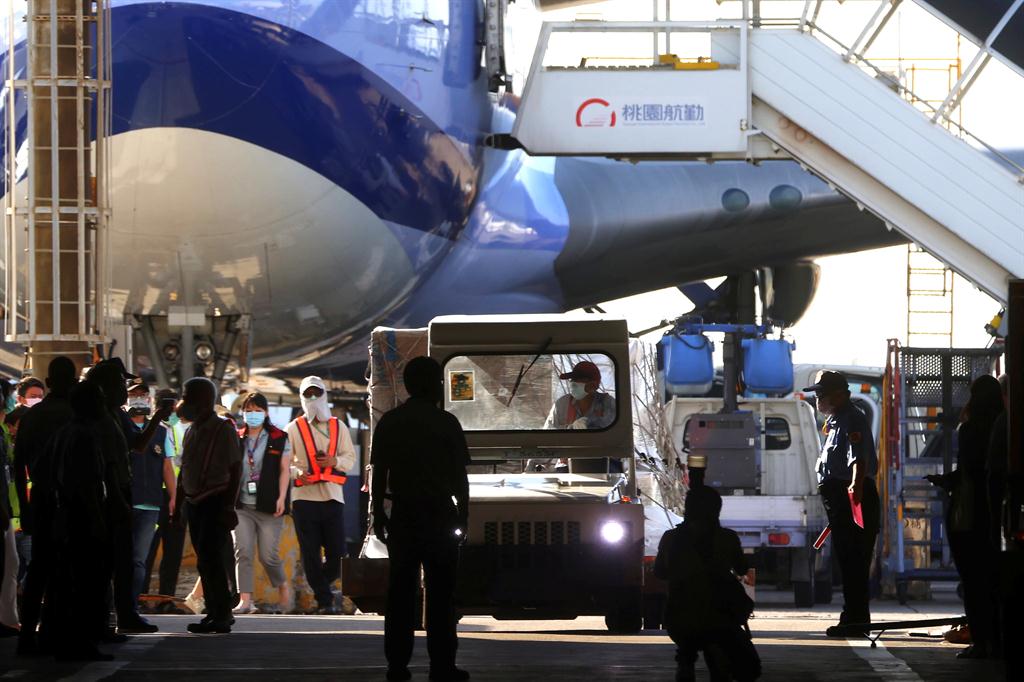Logistical challenges hamper vaccination in Africa
Africa's slow absorption of the vaccines is also affecting the health sector, where only one in four workers has been fully vaccinated.
Many African nations are struggling with the logistics of accelerating their Covid-19 inoculation campaigns as deliveries of vaccines to the continent finally pick up, the head of Africa's disease control body said on Thursday.
Only 6.6% of Africa's population of 1.2 billion is fully vaccinated, John Nkengasong, head of the Africa Centres for Disease Control and Prevention (Africa CDC), told a virtual news conference.
That means Africa is far from reaching the African Union's aim of fully vaccinating 70% of people by the end of 2022, he said.
"What we are seeing now is a lot more vaccines coming in and the uptake is challenged because of the logistics and delivery," said Nkengasong. "It's not necessarily about hesitancy, it's about moving vaccines from the airport to the arms of people, it's about logistics."
Africa's slow absorption of the vaccines is also affecting the health sector, where only one in four workers has been fully vaccinated, the World Health Organization's Africa office said.
"Unless our doctors, nurses and other frontline workers get full protection, we risk a blowback in the efforts to curb this disease," Matshidiso Moeti, WHO's regional director for Africa, told a separate briefing.
Nkengasong said Democratic Republic of Congo and Cameroon faced particular logistical challenges.
Congo
Congo has administered about 168 000 doses of Covid-19 vaccines, a Reuters tracker showed, enough to have fully vaccinated 0.1% of the population.
In April, authorities reallocated to other African countries most of the 1.7 million Covid-19 vaccine doses that Congo had received a month earlier from the COVAX vaccine-sharing facility because they were set to expire.
Across Africa, authorities successfully conduct routine mass vaccination campaigns against diseases such as measles. But many struggled earlier in the year when Covid-19 doses arrived, citing shortages of funding, training and cold storage.
Of some 403 million doses of Covid-19 vaccines distributed to 54 African countries, 55% or 221 million have been administered.
South Africa has asked Johnson & Johnson and Pfizer to delay delivery of more Covid-19 vaccines because it now has too many in stock, Reuters reported on Wednesday.
Namibia warned on Thursday that more than 268 000 doses of AstraZeneca and Pfizer Covid-19 vaccines were at risk of being destroyed, some as early as next week, due to slow uptake. -Nampa/Reuters
Only 6.6% of Africa's population of 1.2 billion is fully vaccinated, John Nkengasong, head of the Africa Centres for Disease Control and Prevention (Africa CDC), told a virtual news conference.
That means Africa is far from reaching the African Union's aim of fully vaccinating 70% of people by the end of 2022, he said.
"What we are seeing now is a lot more vaccines coming in and the uptake is challenged because of the logistics and delivery," said Nkengasong. "It's not necessarily about hesitancy, it's about moving vaccines from the airport to the arms of people, it's about logistics."
Africa's slow absorption of the vaccines is also affecting the health sector, where only one in four workers has been fully vaccinated, the World Health Organization's Africa office said.
"Unless our doctors, nurses and other frontline workers get full protection, we risk a blowback in the efforts to curb this disease," Matshidiso Moeti, WHO's regional director for Africa, told a separate briefing.
Nkengasong said Democratic Republic of Congo and Cameroon faced particular logistical challenges.
Congo
Congo has administered about 168 000 doses of Covid-19 vaccines, a Reuters tracker showed, enough to have fully vaccinated 0.1% of the population.
In April, authorities reallocated to other African countries most of the 1.7 million Covid-19 vaccine doses that Congo had received a month earlier from the COVAX vaccine-sharing facility because they were set to expire.
Across Africa, authorities successfully conduct routine mass vaccination campaigns against diseases such as measles. But many struggled earlier in the year when Covid-19 doses arrived, citing shortages of funding, training and cold storage.
Of some 403 million doses of Covid-19 vaccines distributed to 54 African countries, 55% or 221 million have been administered.
South Africa has asked Johnson & Johnson and Pfizer to delay delivery of more Covid-19 vaccines because it now has too many in stock, Reuters reported on Wednesday.
Namibia warned on Thursday that more than 268 000 doses of AstraZeneca and Pfizer Covid-19 vaccines were at risk of being destroyed, some as early as next week, due to slow uptake. -Nampa/Reuters





Comments
Namibian Sun
No comments have been left on this article